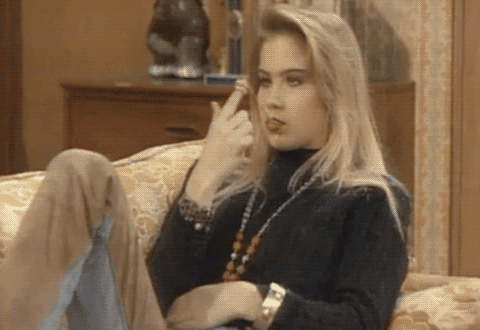I was reading Middlemarch from September 2014 to January 2015, and I directly hit a slump when I finished it, because I don't think I remember how to be a person who's not reading Middlemarch.
 |
| Is this what I used to do before I can't remember. |
So I blame George Eliot for the fact that I haven't updated my blog since mid-January. I kept sitting down to organize my recollections and getting overwhelmed by my entire notebook of quotes compiled over five months and then watching an episode of Broad City before an episode of Broadchurch, topped off with an episode of Mozart in the Jungle (because edgy drama about the New York Symphony Orchestra that centers on the experiences of a fresh-faced oboist from North Carolina).
Maybe if I just . . . start typing words related to Middlemarch.
Dorothea Brooke is our main character. She starts off young and naive and makes some frustrating decisions to work around the societal restrictions she faces as a woman. She's not a revolutionary; she's not consciously attempting to overthrow the patriarchy. She just wants to contribute something lasting to the world, and she decides her best bet is to marry a much older man so she can be his helpmate (geeeeez, I hate that word) and contribute to his grand theological pursuits.
Just by doing what comes naturally to her as a character, she facilitates George's commentary on the general undesirability of women who have too many big ideas, commentary that seems a lot like satire until you remember that's totally how it was.
A young lady of some birth and fortune, who knelt suddenly down on a brick floor by the side of a sick labourer and prayed fervidly as if she thought herself living in the time of the Apostles - who had strange whims of fasting like a Papist, and of sitting up at night to read old theological books! Such a wife might awaken you some fine morning with a new scheme for the application of her income which would interfere with political economy and the keeping of saddle-horses: a man would naturally think twice before he risked himself in such fellowship. Women were expected to have weak opinions.
 |
| Men everywhere will find themselves without saddle-horses. |
This character could have easily come off as too pure and noble, borderline insufferable, totally unrelatable . . . but that's just not Dorothea.
George gives us a whole assortment of lady characters to remind us that women react to societal constraints in drastically different ways. For example, Dorothea's sister, Celia, is content to be a wife and mother and leave the thinking to the menfolk. Rosamond Vincy is a shallow, vain, but accomplished woman who marries the handsome new doctor, thinking only of what he can do for her; she's both a victim and a villain in their relationship, unprepared for the messiness of marriage, unwilling to make the necessary sacrifices. Her character arc is complicated and infuriating and so relevant.
One of my favorite moments in the book involves a woman who barely figures into the plot but whose one scene is just . . . no, I can't summarize it effectively enough. You have to read it yourself. Right now. Sorry if this is annoying for you.
The relevant context here is that this woman's husband did something awful before they married, and his shameful past has come to light and is starting to make the rounds about town. And it's bad . . . like, they might have to move bad. And he hasn't been able to bring himself to tell her because he's so ashamed. Action.
It was eight o'clock in the evening before the door opened and his wife entered. He dared not look up at her. He sat with his eyes bent down, and as she went towards him she thought he looked smaller - he seemed so withered and shrunken. A movement of new compassion and old tenderness went through her like a great wave, and putting one hand on his which rested on the arm of the chair, and the other on his shoulder, she said, solemnly but kindly -
'Look up, Nicholas.'
He raised his eyes with a little start and looked at her half amazed for a moment: her pale face, her changed, mourning dress, the trembling about her mouth, all said, 'I know'; and her hands and eyes rested gently on him. He burst out crying and they cried together, she sitting at his side. They could not yet speak to each other of the shame which she was bearing with him, or of the acts which had brought it down on them. His confession was silent, and her promise of faithfulness was silent.Is that not gorgeous and heartbreaking?
And George accomplishes that level of truth and nuance over and over with a host of characters and themes. I'm not even getting into the different aspects of masculinity represented in her male characters, but suffice it to say, she doesn't neglect the other half of the gender coin or ignore the unique plight of men caught in these social systems.
 |
| I know, but the thing is they do. |
In this one small town, we see the workings of politics, the restrictions of gender, the dictates of class, the devastating effects of rumor (true and false), and the way that caring too much what your neighbors think of you can interfere with your kissing that nice man with the blue eyes, just kissing him all over his face.
I can't wait to read all 896 pages of it again someday.


No comments:
Post a Comment